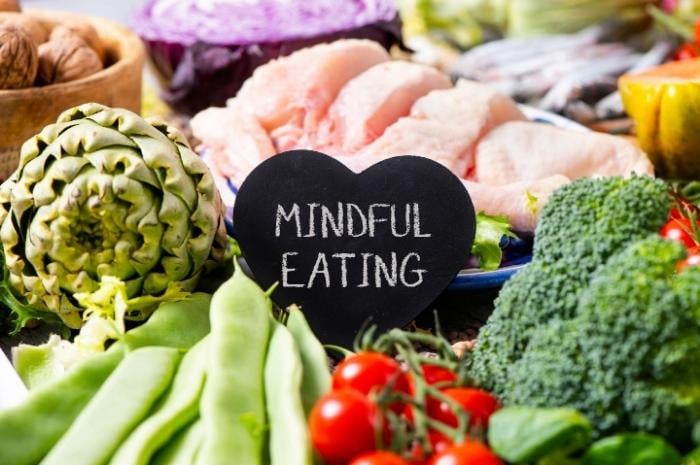Preventative medicine can be our best friend, and we should be sure to cultivate that understanding. We want to maintain healthy habits to ensure support for the body is ready to go in times of crisis.
Self-care is a constant responsibility that ideally is taught early on in life, but sometimes has be to taught through tougher experiences.
Despite the health lessons from school and nutritional lessons while challenging our dinner plates nightly while growing up, most of us are bombarded with drastically different stimuli daily.
These unexpected events and overcrowded schedules can make it pretty difficult to stay on track. Covid-19 gives us all a reason to utilize the lessons we've grown up with and to be extra vigilant in doing so.
Preventing Illness by Supporting and Boosting the Immune System
Through convenience and advertising, our diets are swayed in the direction of processed snacks and junk food to stay fueled throughout busy stress-packed schedules. Right now, as the world has slowed and ordinary daily life has almost come to a halt, those demands have temporarily dissipated. While this could potentially lower stress, worries about the future are far more likely to keep most in the same anxious states.
Without a proper outlet can this can quickly turn into quite a bit of pressure. The best thing to do right now is to handle what is within your control, yourself. Take ideal care towards yourself, as much as possible, when will another opportunity to take this time on you occur?
This care includes what you eat, how you move, and what you feed your mind as well. Preventative care is all about keeping these aspects in balance for optimal functioning from your head to your toes.
There are some boxes to be sure to mark off on the checklist when it comes to boosting the immune system.
Here are a few key points to integrate into daily life for optimal vitality:
Incorporate leafy greens
All greens are full of a variety of essential antioxidants, vitamins, and minerals, antioxidants. They help neutralize free radicals and provide fundamental nutrients that increase the infection-fighting ability of the immune systems.
Vitamin B Supplements
B6, B9, and B12, in particular, influence the production and activity of natural killer cells. B6 and B9 are also within leafy vegetables, nuts, and legumes. B6 is also found in fortified cereals, while B9 is in seeds and commercial bread flour. Vegan B12 sources include supplements, mushrooms, and fortified non-dairy milk.
Vitamin C
This immunity-boosting vitamin is easily accessible from citrus fruits, greens, avocados, and tomatoes. Vitamin E and C together assist in protecting your cells from inflammation-causing oxidative stress.
Get Creative with Mushrooms
Vitamin D gets typically absorbed through sunlight, but this may be a little tricky considering the coronavirus quarantine. Mushrooms such as the portobello, button, and shiitake varieties contain vitamin D. For those who aren’t fans of their earthy flavor there is also fortified non-dairy milk, tofu, orange juice, and supplements to choose from as well.
Legumes And Beans
Legumes contain iron, which kills pathogens by increasing the number of free radicals. They also contain B vitamins, magnesium, and zinc. Some beans, such as pinto, kidney, and black beans are all rich in protein, which builds and repairs tissue and helps fight viral and bacterial infections.

Eat the Rainbow
Each color in food relates to the family of plant pigments and is indicative of the nutrient content, antioxidants, vitamins, and minerals contained within. A diet that incorporates the whole color spectrum of fruits and vegetables can have many positive health and vitality outcomes.
Those who have adopted the ‘beige diet’ mostly likely do not consume enough color within their daily food options. Beige includes the spectrum from white to brown, including foods such as potatoes, dairy, and grains. When these contribute to the most considerable portion of daily meals and snacks, health problems can quickly arise.
Using color as a guide to healthy eating is a simple but scientifically validated way to ensure that you are consuming a full spectrum of plant-derived nutrients in your diet.
Get Moving and Exercise
Increased exercise combined with proper nutrition can positively impact helpful microorganisms that naturally inhabit your intestine. Exercise increases the richness and diversity of gut microbiota, which is in complex relationships among the body and immune system.
When eating healthily, you and microbiota can have a symbiotic relationship, since as you feed yourself, you feed the gut microbiota. Everything that goes into the body counts, either for or against it.
Balance Exercise with Adequate Rest
The essentials of sleep skyrocket when health and immunity become major players. Be sure not only to get the recommended 7-8 a night, but take naps and really listen to what the body is asking for. The healing that occurs when in a slower brain frequency and at rest is far greater than what's happening during the day the body is pushed through a series of obstacles known better as life.
Give yourself breaks as necessary, and keep in mind stressful times increase negative reactions which weaken and takes a greater toll on the immune system than usual.
Decrease Stress
Stress being so individualized makes it challenging to define. What may appear to be a disturbing situation for one person is not for another. When exposed to conditions regarded as stressful, many signals start triggering, and different processes kick off in the body. Even while appearing calm on the surface, some of us are masters of masking the internal hurricane going on. Stress is by far the most hidden culprit that is easiest to brush off, yet comes back with a plethora of after-effects.
Take the time to slow down and breathe. Identify your thoughts, label them as what they are, and let them go. Internal dialogue can be going on in the background without our awareness, and they can quickly start directing your thoughts and actions. Keep control; after all, this is all about preventative care. Don’t wait until situations get overwhelming to try to manage stress. It’s management, and just like healthy eating and exercise, it takes a conscious effort to stay focused and balanced.

Self-Love and Care is the BEST Preventative Medicine
Every piece of the body is so intricately intertwined and, similarly to us here on the planet, has a pretty complex communication system. Be sure to heed physical signals (pain, fatigue, fainter sensations), and note emotional states and overall thoughts.
If you find yourself quickly swaying in emotions or continuous negative thought processes, talk with someone you trust and can be open with feelings. Often ideas only need to be expressed out in the open to relinquish their power, and swaying emotions are usually signs of something buried within and not being acknowledged.
Putting only a variety of suitable substances into the body and mind clears the path to a life full of vitality and clarity. Add in physical and mental exercises to keep energies flowing, and a healthier future is inevitable. It takes commitment, but the rewards of well-being and strength that come around are well worth the exchange.
All of these methods are wonderful to incorporate into practice every day. Treating the body as a tool that gets you through life makes it a little clearer why self-preventative care is so crucial. The body is beyond mechanical though, which is why mental and emotional care is just as vital as eating healthy and exercise.















